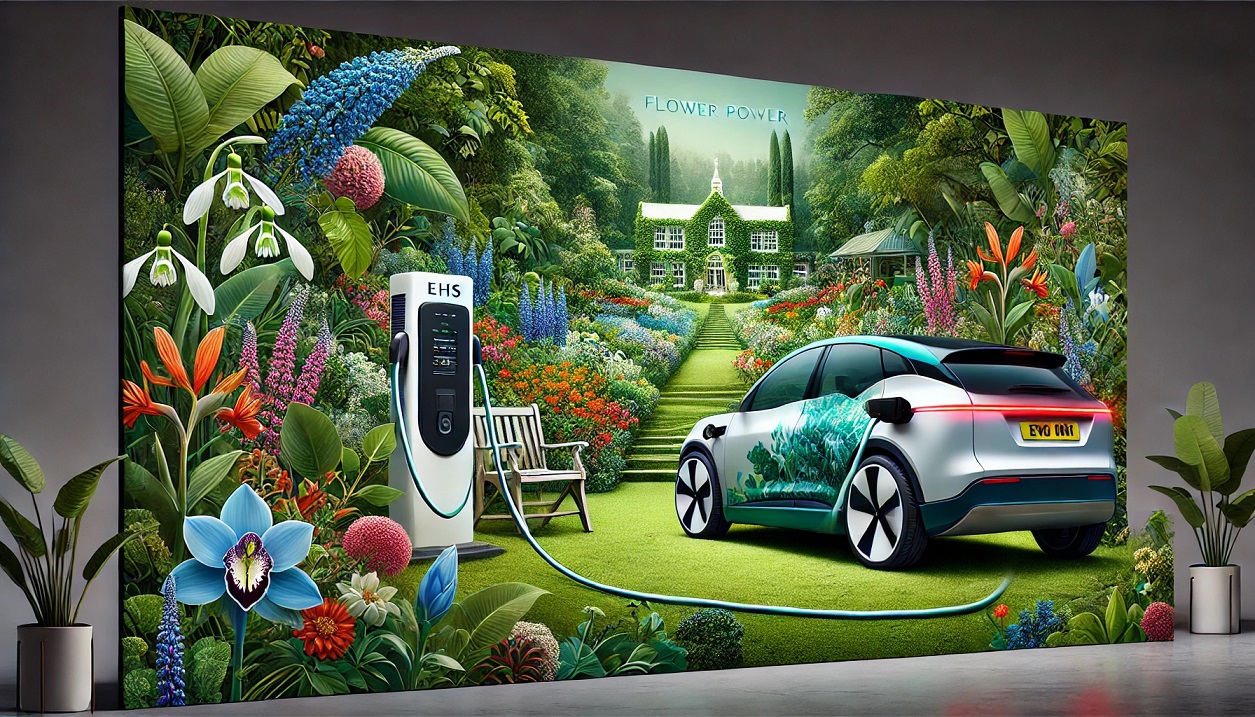The Royal Horticultural Society (RHS) is enhancing its commitment to sustainability by installing over 90 electric vehicle (EV) charging stations across its five major gardens in the UK. This initiative aims to provide eco-friendly amenities to visitors, seamlessly blending modern technology with the tranquility of nature.
In a significant move towards sustainable tourism, the Royal Horticultural Society (RHS) is set to install over 90 electric vehicle (EV) charging stations across its five major gardens in the United Kingdom. This initiative not only underscores the RHS's dedication to environmental stewardship but also caters to the growing number of eco-conscious visitors. By integrating EV charging facilities, the RHS bridges the gap between technological advancement and the serene beauty of its gardens, offering a harmonious experience for all.
Key Highlights of the Initiative
1. Extensive EV Charging Infrastructure
- Comprehensive Coverage: The RHS plans to equip all five of its major gardens—Wisley, Bridgewater, Harlow Carr, Hyde Hall, and Rosemoor—with state-of-the-art EV charging stations. This extensive network ensures that visitors across the country can benefit from these facilities.
- Fast Charging Capabilities: The newly installed chargers are designed to provide rapid charging, enabling visitors to replenish their vehicle's battery within approximately an hour. This efficiency allows guests to enjoy the gardens without extended waiting periods.
2. Strategic Partnership with Raw Charging
- Expert Collaboration: The RHS has partnered with Raw Charging, a renowned EV charging solutions provider, to oversee the installation and maintenance of the charging stations. This collaboration ensures that the infrastructure meets high standards of reliability and performance.
- Aesthetic Integration: Special attention has been given to the visual design of the charging stations. Efforts have been made to ensure that the installations complement the natural and architectural beauty of each garden, maintaining the aesthetic integrity that visitors cherish.
3. Enhancing Visitor Experience
- Convenience for EV Owners: By offering on-site charging facilities, the RHS provides added convenience for visitors driving electric vehicles, eliminating the need to seek external charging points and enhancing the overall visitor experience.
- Promoting Sustainable Practices: The availability of EV charging stations encourages more visitors to consider electric vehicles as a viable and convenient option, aligning with broader environmental goals.
Benefits of the EV Charging Initiative
- Environmental Impact: By facilitating the use of electric vehicles, the RHS contributes to the reduction of carbon emissions, aligning with global efforts to combat climate change.
- Leadership in Sustainability: The RHS sets a precedent for other cultural and recreational institutions by integrating sustainable practices, reinforcing its role as a leader in environmental responsibility.
- Educational Opportunities: The initiative serves as a live demonstration of sustainable technology, offering educational opportunities for visitors to learn about the benefits and operation of EVs and charging infrastructure.
Considerations and Potential Challenges
- Initial Costs: The installation of advanced EV charging infrastructure requires significant upfront investment. However, this is balanced by the long-term environmental and reputational benefits.
- Maintenance Requirements: Ongoing maintenance is essential to ensure the reliability of the charging stations. Partnering with experienced providers like Raw Charging mitigates this concern.
- Visitor Adaptation: While many visitors will welcome the new facilities, some may require time to adapt to the presence of modern technology within traditional garden settings. Thoughtful design and placement aim to minimize any potential disruption.
Community and Expert Reactions
- Positive Reception: The initiative has been widely praised by environmental groups and the EV community for promoting sustainable practices within public spaces.
- Expert Endorsement: Sustainability experts highlight the RHS's efforts as a model for integrating green technology into cultural and recreational venues, emphasizing the importance of accessible EV infrastructure.
Future Outlook
- Expansion Plans: Depending on visitor uptake and feedback, the RHS may consider expanding the number of charging stations or enhancing existing facilities to accommodate future demand.
- Integration with Other Green Initiatives: The RHS's commitment to sustainability may lead to additional projects, such as renewable energy installations or eco-friendly transportation options within the gardens.
- Influence on Other Institutions: The success of this initiative could inspire similar organizations to adopt EV charging infrastructure, amplifying the impact on sustainable tourism and public engagement.

















Comments 0